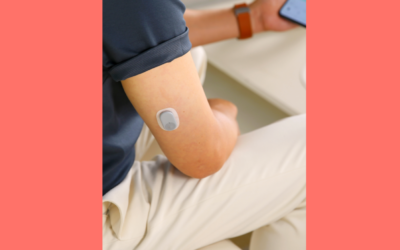By Lisa O'Keeffe on May 27, 2021
As part of the NHS long-term plan, from April 2021 all parts of England are now served by an Integrated Care System – or ICS. Designed to provide joined-up health and care services within an area, ICSs depend on collaboration and the removal of organisational divides with a view to improving population health and tackling health inequalities.
The change marks a fundamental shift in the way the health and care system is organised, but what does it mean in practise for those within it?
In the first of our Spirit Speaks interview series, we caught up with Nicola Haywood-Alexander, CIO at Lincolnshire NHS ICS, to get her insights into the present challenges and future plans for integrated care systems, as well as talking about the impact of COVID-19 and growing up in a healthcare focused-family…
Watch the full video now:
What does an integrated care system mean to you?
Instead of trying to explain what it is, I want to explain how it improves things for our citizens as patients and carers by way of a personal example. I was a carer for my mother for five to six years while she had Parkinson’s.
She had care health and care services from the hospital, specialist nurses, her GP, social services and the care providers who would come in and help her at home. She also had third party organisations, such as the Parkinson’s organisation, who provided physiotherapy classes, Age Concern who provided support, the Red Cross who would bring equipment that she needed and also the pharmacist to ensure that she was taking regular medication at the right time. Integrated care meant all those different organisations understanding their role around my mum as a super multidisciplinary team. Being able to have their organisations working together in partnership and operating in a way that each knew what each was doing to support mum, and mum would be confident that each would do what they needed to support her.
From a digital perspective, we were using technology and data across those services and across those individuals supporting her to make sure that they were sharing information. From information about where she was in her care pathways and what medication she was now on, to managing hospital admissions and being discharged back into the community and the team there knowing any additional care they’d identified that she needed. That to me is a truly integrated care system.
We know from a patient point of view, the carer point of view and from the staff working at the frontline that when the system is truly integrated, it works to the benefit of everybody. Those wonderful people working on the frontline feel that they can do the best job they can for their patients and for their service users.
How has the COVID-19 pandemic impacted the planning of the ICS leadership and formation?
It’s been interesting because in a traditional way, you would say that it has been disruptive. In Lincolnshire, it was decided that because of the impact that COVID was having, that they would move to a very light governance arrangement. Planning became equally very light and very responsive to immediate priorities or what the government was identifying as we moved through the different phases of the pandemic.
The interesting thing with digital is that you could almost say it was disruptive in a positive way. Out of this really difficult time that we’ve all been through as individuals, communities and society, there has been this positive for those of us who are advocates of digital enablement of the health service in that it has been a catalyst for change.
The pandemic has allowed people who have been very dubious about the benefits of digital enablement of our services to see those benefits, feel and work with those benefits and find ways of resolving the things that they were worried about because they’ve had to. That applies to care providers, clinicians and the citizens themselves – they have responded really positively to what we’ve had to do.
Now we’re starting to look at how technology can also help with recovery and how will we be able to use technology to bring down those waiting lists that have built up over time.
Do you see digital health technology as a key part of the recovery and of the ICS future?
Absolutely, and you can see how technology was starting to become a key enabler in healthcare strategy. The last long-term plan that was pre-covid had a digital chapter and that was a first, we haven’t had a digital chapter before. The digital workstream was seen less as being a facilitator of IT services, ensuring everybody had their desktops and connectivity. I think traditionally that’s how IT was seen but I think it’s come to its fore in terms of those people having the expertise in what are the best technologies that we can be using to enable the new models of care that our colleagues are designing.
I’m a big advocate of co-design, so this is actually bringing that digital expertise alongside our clinical leadership, our transformational experts and working together on how technology can what they are wanting to do. It’s a bit like a Formula One team, you’ve got your drivers and they are out there winning the races, but the drivers need a really good engineer and pit-stop team behind them. The team is there to ensure that the engine is the best engine, it has the best parts and they’re working together to keep the engine in tip-top condition.
What do the next 12 months hold for your ICS and for the ICS formation across the country?
Digital data and technology is a workstream in the national ICS programme so this is us appreciating, at a national level, how digital data and technology is an integral part of the ICS organisation and services.
One of the things we will be working on over this next year is how we bring back an appropriate level of governance and how we create a collaborative set of services and organisations. This is about us being able to make decisions around where is this a policy matter that sits at the system level, where is this a strategy matter, where is this a collaborative services opportunity, or even a shared solution opportunity for the system.
In terms of the areas of key interest for us, most immediately it’s population health management. Bringing data into a location that’s appropriately managed and shared to enable us to better understand the health of our population, and any health inequalities. That data shapes how we design and deliver services to address the needs of our population and address those inequalities.
The second one is this continued establishment of remote care capabilities. This covers remote monitoring, community-based diagnostics and virtual wards that allow us to either prevent unnecessary admissions and support people at home, or to enable earlier or step-down discharges. It also enables online consultation in primary care and digital outpatients with acute, secondary and specialist care.
Another area is our shared care record. We are well progressed with our integration capabilities as a system in Lincolnshire, with a care portal which then feeds the shared care record. There are still a couple of areas we need to ensure are fully integrated and those organisations have the necessary IG requirements to share their data with the care portal. We are aiming to have that complete by September to meet the national minimum requirement.
We are also really excited about developing a proof of concept for a citizen atrium. This is about creating a place that citizens can enter and be guided to different parts of our health and care systems, between the NHS, the local authority, our third-party providers. It’s a place where the citizen is in charge and the data collected about them belongs to them – they can then choose how they want to share that data with those colleagues that are providing them with the necessary services.
Finally, I think another focus is making sure that people have the technology that can perform quickly and easily for them. The last thing our clinicians want when they’ve only got 10 minutes with a patient is to be spending those 10 minutes trying to get the technology to work, so it’s really important that we have a high baseline standard. With Lincolnshire being a rural area, we are challenged when it comes to connectivity so we are working with national programmes to look at how we can improve our broadband facility across the region into people’s homes.
What advice would you give to an ICS that’s starting to form their digital strategy?
I think the first thing is just to get hold of what’s going on. I came here less than six months ago, so I’ve been gradually getting hold of what’s already happening across the system, where are we at with those commitments we’ve against any existing digital road map and those commitments that we have made to the targets that were laid down in the long-term plan digital chapter.
It’s also important to find out where is the energy in the system, so where have you got people who are really enthusiastic and wanting to move forward because they’re going to be your champions and your advocates, and where have you got caution in the system? What are the things that are worrying people? Doing your own analysis of where the system currently is at, not just in terms of what it has and what it’s delivered, but where is it at culturally?
I joined the system and had to get immediately involved in the national vaccine programme that had just been launched, but that was a great way of me getting to know people getting to know and getting to see how people worked and ticked and understand the system as a combination of cultures.
I think the next thing is starting to take your ideas of where we need to go and how we need to get there and take it back out to your leaders and the people that are going to be using this technology and discuss with them what the best way to achieve it.
Finally, what’s really important at the moment is that it is actually a massive portfolio and you are going to have to work with colleagues to look at how you prioritise. If you have a limited resource or a constrained resource, as most systems have, you have to make some really difficult decisions about the pace at which we can take certain things and what are going to be our priority pathways and capabilities to develop.
If you had three wishes for ICS’s across the nation, what would they be?
I think putting the citizen at the heart of everything you do, and then remembering that that citizen is not just a patient they could be a service user could be a carer and then they are also our own staff, our staff working at the frontline. Put those people who are at the point of care at the centre of everything you do and be collaborative about everything you do. Work together to do what’s best for those people that are at the point of care.
The second thing is for me is around data and that’s a remembering that the data doesn’t really belong to individual organisations, it’s essentially belongs to the patient. We are at best the custodians of that data and again we have to work collaboratively to look after it appropriately, share it, manage it and utilise it appropriately again to get the best outcomes for our patients.
Finally, it’s to be able to feel that we are one team together. COVID has demonstrated our ability to come together to be really innovative, to work together to knock down any barriers that were there. An integrated care system is about creating the ability that all those people that sit around that particular citizen, supporting them with their needs, do not feel inhibited in any way as to how they can best work together and be highly interoperative.
I was talking to one of the senior citizens at the hospice who was a district nurse previously and she was saying that as the NHS and population has grown, services and demand has grown and we have become more complex. That ability to work as an MDT was reasonably simple around 40 years ago, but it is much harder now. If what we can do with the ICS is make that easier, I think that’s great.
Before we get into the really exciting, innovative stuff using applications, patient atriums, remote capabilities and AI to support diagnostics, underneath that there is a basic thing I have to achieve for Lincolnshire with my team. Wherever somebody providing health and care services, regardless of what organisation they work for, wherever they happen to be delivering that care to that citizen, they can get to the technology and the data easily and quickly that they need to get to. That’s our role in helping them work as multidisciplinary teams.
What’s your favourite part about working with the NHS?
Being able to make a difference to people. I was raised by people who worked in the NHS, so although I’m not a healthcare professional myself, I spent many a time under the desk of somebody working on a ward playing with my toys!
I was always aware of the value and importance of caring for people and being there for people, and if mum had to get up in the middle of the night to go in because she was on call. We spent Christmas as a family in the hospital because that’s what we were doing I think that was very much part of me. Being able to make a difference for those people providing the care, make a difference to people receiving the care and creating the best environment in which they can do that well I think it’s really, really important.
I can see where the challenges are, and I think what I love the most is being able to solve the problem. That’s where the engineer in me comes out, being able to see where the challenges are, see where the problems are, solved that problem for the purpose of a positive outcome for someone else.
Spirit Speaks is our new interview series, bringing regular insights, panels and experiences around a range of digital health topics. Check back soon for our next interview, or if you’re interested in being interviewed for the series, please email us at digital@spirit-health.com.


